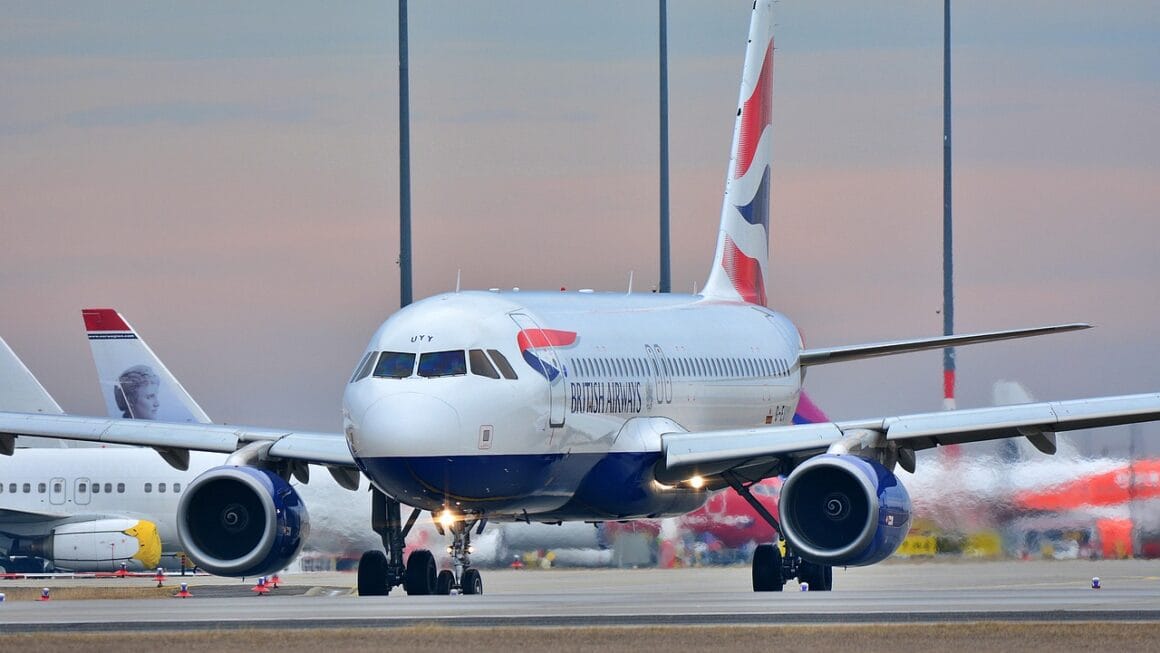Traveling solo has its allure, but there’s an undeniable magic to exploring the world with friends, family, or like-minded individuals. Group travel offers a chance to create shared memories, strengthen bonds, and experience adventures that are often more enriching and accessible than traveling alone. Whether you’re planning a family reunion, a corporate retreat, or simply a vacation with your best friends, this guide will provide you with the insights and strategies you need to plan a successful and memorable group trip.
The Benefits of Group Travel
Cost Savings
Group travel often unlocks significant cost savings. Tour operators and hotels are often willing to offer discounted rates for larger groups.
- Accommodation: Booking multiple rooms or even entire villas/apartments can lead to substantial discounts.
Example: A villa rental in Tuscany splitting the cost among 4 families instead of each booking separate hotel rooms.
- Transportation: Group transport options like chartered buses or vans are often more cost-effective than individual car rentals.
Example: Booking a private bus for airport transfers and excursions in Iceland for a group of 20.
- Activities and Tours: Many tour operators offer group discounts on excursions, guided tours, and activities.
Example: Receiving a 15% discount on a guided hiking tour in the Swiss Alps for a group of 10.
- Meals: Sharing meals family-style or pre-booking group dinners at restaurants can often lead to better deals.
Shared Experiences and Enhanced Memories
Traveling with others creates a shared narrative and strengthens relationships. The shared laughter, challenges overcome, and discoveries made become lasting memories.
- Strengthened Bonds: Group travel can deepen connections with family, friends, or colleagues.
- Shared Perspective: Seeing the world through different perspectives enriches the experience.
- Increased Fun: Having others to share the adventure with can amplify the joy and excitement.
- New Friendships: Group tours often introduce you to new people with shared interests, leading to lasting friendships.
Enhanced Safety and Support
There’s safety in numbers, especially when traveling to unfamiliar destinations. Having a support system readily available can provide peace of mind.
- Security: Traveling in a group can deter petty theft and provide a sense of security in unfamiliar environments.
- Assistance: Having others to rely on in case of illness, injury, or other unexpected events can be invaluable.
- Language Support: If some members of the group are fluent in the local language, they can assist others.
- Shared Responsibility: Dividing tasks such as navigation, translation, and logistics can make the trip smoother.
Increased Accessibility and Inclusivity
Group travel can make travel accessible to individuals who might not otherwise be able to travel alone, such as seniors or people with disabilities.
- Support for Seniors: Group tours designed for seniors often provide extra assistance and cater to their specific needs.
- Accessibility Features: Some tour operators specialize in accessible travel, ensuring that accommodations and activities are suitable for people with disabilities.
- Reduced Isolation: Group travel can provide companionship and reduce feelings of isolation for solo travelers.
Planning Your Group Trip: A Step-by-Step Guide
Define the Purpose and Scope
Before diving into logistics, clarify the purpose of the trip and the desired scope.
- Define the Objective: Is it a family vacation, a corporate retreat, a milestone celebration, or something else?
- Determine the Budget: Establish a realistic budget per person, considering accommodation, transportation, activities, and meals.
- Identify the Group Size: Knowing the number of travelers is crucial for booking accommodation and transportation.
- Set the Duration: Decide on the length of the trip and the start and end dates.
Choose a Destination
The destination should align with the group’s interests, budget, and physical capabilities.
- Consider Interests: Choose a destination that offers activities and attractions that appeal to everyone in the group.
Example: A group of history buffs might enjoy visiting Rome or Athens, while a group of adventure enthusiasts might prefer Costa Rica or New Zealand.
- Assess Accessibility: Ensure that the destination is accessible for all members of the group, considering mobility issues, dietary restrictions, and other special needs.
- Research Climate and Seasonality: Choose a time of year when the weather is favorable and the destination is not overly crowded.
- Evaluate Safety and Security: Research the safety and security situation in the destination and take necessary precautions.
Delegate Tasks and Responsibilities
Sharing the workload can make the planning process more manageable and enjoyable.
- Assign Roles: Designate individuals to handle specific tasks, such as booking flights, researching accommodation, planning activities, and managing finances.
- Communicate Clearly: Establish clear communication channels, such as a group email or messaging app, to keep everyone informed and on track.
- Set Deadlines: Set deadlines for completing tasks to ensure that everything is done in a timely manner.
- Gather Input: Encourage everyone to contribute their ideas and preferences to ensure that the trip meets everyone’s needs.
Create a Detailed Itinerary
A well-planned itinerary is essential for a smooth and enjoyable trip.
- Balance Structure and Flexibility: Include planned activities but also allow for free time to explore independently or relax.
- Consider Travel Time: Factor in travel time between destinations and activities to avoid rushing.
- Book in Advance: Book flights, accommodation, tours, and activities in advance, especially during peak season, to secure the best prices and availability.
- Share the Itinerary: Share the itinerary with all members of the group and make sure everyone has access to it.
Managing Group Dynamics and Expectations
Establish Clear Communication
Open and honest communication is key to a harmonious group trip.
- Set Ground Rules: Establish clear expectations for behavior, communication, and decision-making.
- Encourage Participation: Encourage everyone to voice their opinions and concerns.
- Address Conflicts: Address conflicts promptly and fairly to prevent them from escalating.
- Be Respectful: Treat everyone with respect and consideration, regardless of their opinions or preferences.
Accommodate Different Interests and Needs
It’s impossible to please everyone all the time, but strive to accommodate different interests and needs as much as possible.
- Offer Options: Provide a variety of activities and excursions to cater to different interests.
- Allow for Flexibility: Allow individuals to opt out of activities or excursions that they are not interested in.
- Be Inclusive: Be mindful of dietary restrictions, physical limitations, and other special needs.
- Compromise: Be willing to compromise and find solutions that work for everyone.
Manage Finances Transparently
Money matters can be a sensitive topic, so manage finances transparently and fairly.
- Establish a Budget: Establish a clear budget per person and stick to it as closely as possible.
- Track Expenses: Track all expenses carefully and share them with the group.
- Use a Shared Expense Tracker: Use a shared expense tracker app to simplify the process of splitting costs.
* Example: Apps like Splitwise or Tricount can help manage and track shared expenses easily.
- Settle Up Regularly: Settle up expenses regularly to avoid misunderstandings or resentment.
Deal with Unexpected Issues
Unexpected issues are inevitable, so be prepared to deal with them.
- Be Flexible: Be prepared to adjust the itinerary or activities if necessary.
- Stay Calm: Stay calm and level-headed in stressful situations.
- Communicate Clearly: Communicate clearly with the group about the issue and the proposed solutions.
- Seek Assistance: Don’t hesitate to seek assistance from local authorities, tour operators, or travel insurance providers.
Essential Tools and Resources for Group Travel
Travel Planning Websites and Apps
Utilize online resources to streamline your planning process.
- Google Docs/Sheets: For shared itinerary planning and budget tracking.
- TripAdvisor: For hotel reviews, restaurant recommendations, and activity ideas.
- Skyscanner/Google Flights: For finding the best flight deals.
- Booking.com/Airbnb: For booking accommodation.
Communication Platforms
Stay connected and informed with these tools.
- WhatsApp/Telegram: For group messaging and instant updates.
- Facebook Groups: For creating a private group to share information and photos.
- Email: For formal communications and sharing important documents.
Financial Management Tools
Simplify expense tracking and splitting.
- Splitwise: For tracking and splitting shared expenses.
- Tricount: Another popular app for managing group finances.
- PayPal: For easy money transfers.
Conclusion
Group travel, though requiring careful planning and coordination, offers a rewarding experience filled with shared adventures and lasting memories. By following the steps outlined in this guide, you can navigate the complexities of group dynamics, manage logistics effectively, and create a truly unforgettable trip for everyone involved. Remember to prioritize clear communication, flexible planning, and a collaborative spirit, and you’ll be well on your way to an enriching travel experience that strengthens bonds and creates stories to be shared for years to come.




